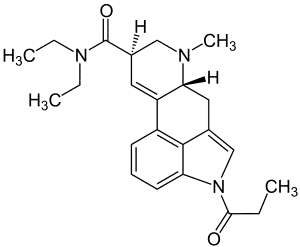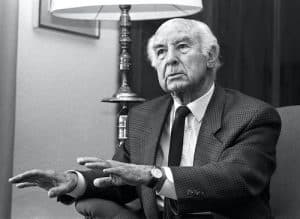
History of Psychedelic Integration Therapy
Psychedelic integration therapy is a form of mental health treatment that is different from mainstream psychotherapy. It was developed as a result of psychedelic therapy. The history of psychedelic therapy dates back to around the 1950s. At that time, researchers believed psychedelic drugs had the ability to treat certain mental health conditions. They called it Psychedelic-Assisted Psychotherapy.
The therapy, also called “trip sitting,” was performed in a highly structured and supportive environment with a trained “guide” or counselor. However, patients needed intense psychotherapy preparation before receiving psychedelic therapy. They also required a licensed therapist to help them understand their psychedelic experiences. Psychedelic integration and aftercare therapy were developed to satisfy that need.
Table of Contents
What Is Psychedelic Therapy?

Psychedelic therapy, not be be confused with Psychedelic Integration Therapy, involved giving the patient a dose of a mind-altering drug such as LSD ( d-lysergic acid diethylamide). LSD is a highly potent hallucinogenic. Other psychedelics used are Psilocybin (“magic mushrooms”), Ayahuasca, and 3,4-methylenedioxy-methamphetamine (MDMA) also called Ecstacy and Molly. These are all controlled or illegal substances that are banned in psychedelic research or treatment outside an FDA-approved clinical trial.
Nevertheless, the goal was to get the patient to experience a transformative or mystical experience. The psychedelic experience is a temporary change of consciousness caused by the administered drug. Patients describe the experience as going on a mental “trip” that allows them to see how their behaviors affect their life.
This could help the patient change their beliefs or attitudes. Researchers believed such changes may help them recover from mental health disorders such as anxiety, depression, and substance addiction.
However, each patient experience is unfamiliar, different, and unpredictable. Patients describe the experience as a “dream,” “vision,” “thoughts,” or “sensations” in a state of consciousness they are not familiar with. Sometimes, bad feelings and traumatic memories are stirred up and throw the individual off balance.
Although the “trip” is “magical” or “healing” for some patients, others have trouble returning to life as they knew it. They may feel confused or unable to make sense of what they encountered in their altered state of consciousness.
Today, LSD and other psychedelics are still Schedule 1 controlled substances in the US. Psychedelic-Assisted Psychotherapy also remains illegal in the US today, but not integration therapy.
Bridging the Gap with Psychedelic Integration Therapy
Think of integration therapy as a session that happens before and following exposure to a psychedelic drug. After an unfamiliar psychedelic experience that may unfold over time, some patients find it difficult to accept life as before.
This is where psychedelic integration therapists or coaches become helpful. They try and help patients understand and integrate the information from their mental experiences into their daily lives. Therapists undergo tailored psychedelic integration training and follow Harm Reduction guidelines when providing therapy. They offer a non-judgmental setting for patients to process their experience. Those planning to go on a “psychedelic trip” to gain new insights about themselves or life can also benefit from the therapy.
Psychedelic Integration Therapist Limitations
The therapist prepares the client for the psychedelic journey and assists them in processing their experience afterward. Their core professional responsibility is to provide a support framework while remaining compassionate and judgment-free.
They help the client undertake their journey with psychedelics and put their insights together in a way that can positively transform their lives. Many therapists use one or more of the following modalities as part of a comprehensive approach to assisting patients:
- Trauma therapy
- Mindfulness and Meditation
- Journaling
- Accept Connect Embody (ACE)
- Emotional Freedom Technique (EFT)
Psychedelic integration therapists do not do the following:
- Provide or administer any psychedelic drugs
- Refer individuals to “underground” drug resources
- Supervise or guide a client who is going through a psychedelic experience
- See clients who are under the influence of any controlled, psychoactive, or psychedelic drug, unless it was prescribed by a doctor
A Look Back at Psychedelic Therapy
There was something called psychedelic therapy before psychedelic integration coaching was even a profession. The origin of psychedelic therapy dates back to the 1950s when Canadian Researchers developed treatments using LSD and other psychedelics.

The treatments were initially to treat chronic and treatment-resistant cases of alcoholism. This was several years after Swiss scientist, Albert Hofmann, discovered the hallucinogenic effects of LSD in 1943.
Later, in the 1960s, various research groups in the US attempted to assess the effectiveness of the treatments. They applied the psychedelic therapeutic technique to new patient groups. The aim was to test its safety and efficacy for treating anxiety and depression linked to terminal cancer, opiate addiction, and psychoneuroses.
The results were promising, and LSD seemed set to become one of the drugs of that era that changed psychiatric treatment. The drugs included chlorpromazine for psychosis, the Monoamine Oxidase Inhibitors (MAOIs) for depression, and diazepam and meprobamate for anxiety.
Psychedelic Therapy Controversy and Decline
Research on the therapeutic benefits of the drug halted around the late 1960s to early 1970s when LSD therapy became controversial and criminalized by new legislations in 1965 and 1970. The drug was branded as harmful because it could significantly alter a person’s perception and mood. Tightened FDA regulations also made it more difficult for researchers to access the drug and funding to conduct clinical trials.
Despite these hurdles, the LSD research program at Spring Grove State Hospital, Maryland, continued. It is the most extensive and successful LSD research program in the US, spanning 1963 to 1976. The studies were funded by the National Institute on Mental Health (NIMH). The last FDA-approved LSD dose was administered around 1986.
The Revival of Psychedelic Therapy
Later, new research started on the therapeutic potential of Psilocybin—the active ingredient in “magic mushrooms” or “shrooms”—instead of LSD. Psilocybin is a powerful psychedelic only about 100 times less potent than LSD. Researchers consider psilocybin therapy as a potential breakthrough treatment for depression and managing alcohol addiction,
Scientists continued to explore the therapeutic potential of psychedelic drugs in the late 1990s and early 2000s. By then, the public and the Food and Drug Administration’s attitude had changed towards psychedelic therapy for treating mental problems. In 2000, psychologist, William Richards, played a huge role in the revival of psychedelic research at Johns Hopkins University. Furthermore, results of a randomized trial, in 2016, showed that Psilocybin has positive therapeutic effects on anxiety and depression in cancer patients.
Where to Find a Licensed Psychedelic Integration Therapist
Therapists who provide integration and aftercare services to clients after their psychedelic experiences are licensed psychotherapists or medical professionals. They are required to undergo rigorous psychedelic integration training and coaching programs. If you’re looking for one to help put your experience in context, you can start your search by using free online directories such as Frshminds.com. Use the search tool to find a “psychedelic integration therapist near me.” Be sure to check out each individual therapist’s website to learn more about their professional background and services.
Curious about psychedelics and mental health? Dive into our Ultimate Psychedelics and Mental Wellness Guide for detailed insights.
Learn More About Psychedelic Integration Therapy
- Have You Heard of a Psychedelic Integration Therapist?
- What is Psychedelic Integration Therapy?
- Ana Holub: Forgiveness, Addiction Recovery and Psychedelic Integration
- Meet June Jackson: New Orleans Psychedelic Integration Specialist and Life Coach
- Psychedelic Therapist Scott Ross’ Insights on Integration Therapy
- Psychedelic Therapist Lynne Nardizzi, LCSW, Talks Psychedelic Integration
- Meet Gerard Artesona: Psychedelic Integration Therapist and Spiritual Guide
- Rima Danielle Jomaa: Psychedelic Integration Therapist and Mindfulness Expert
- Introducing Brian Murphy: Psychedelic and Psychospiritual Integration Therapist

Comments